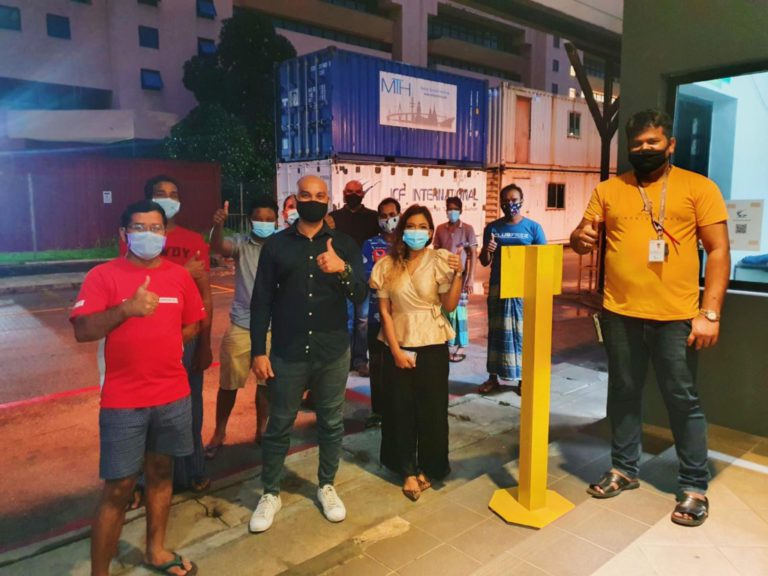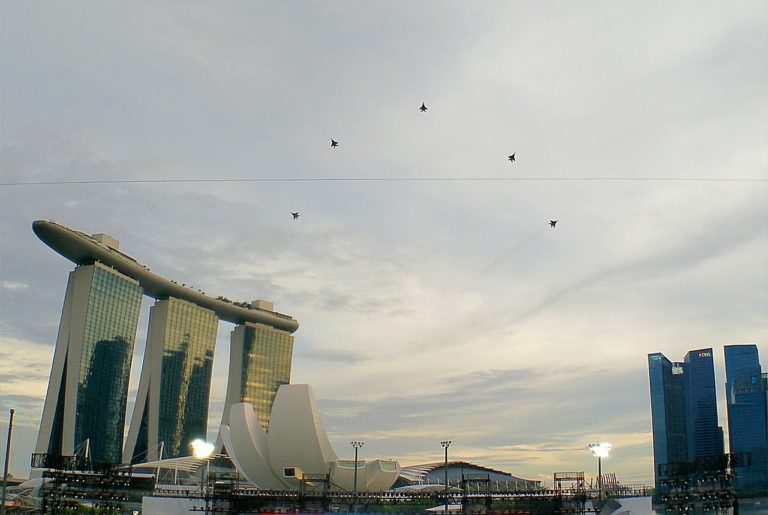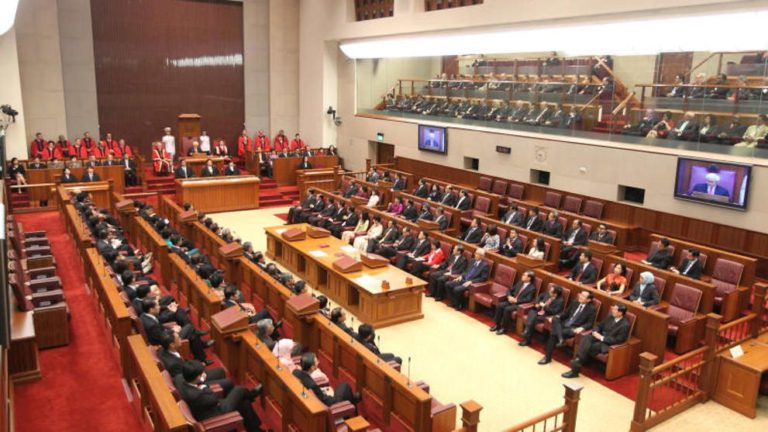Despite the allure of Singapore as a financial and business hub, some high-net-worth individuals (HNWIs) may find themselves facing rejection in their Permanent Residency (PR) applications. Recent news reports about a crypto CEO’s PR application rejection garnered high interest, reflecting the collective opinion on the matter.
With its robust economy, low taxes, and high standard of living, Singapore is a prime destination for HNWIs seeking residency. However, the city-state’s PR approval process remains selective and complex, emphasising qualities beyond financial assets. Below are some possible reasons for rejection for HNWIs when applying for Singapore PR.
6 Possible Reasons Why HNWIs Face Singapore PR Rejection
1. Lack of Evidence of Long-Term Commitment in Singapore
For HNWIs, establishing Singapore as a long-term home rather than just a convenient financial or lifestyle base is crucial for securing PR approval. The Immigration and Checkpoints Authority (ICA) evaluates an applicant’s commitment to building a life in Singapore, and a key part of this assessment is the applicant’s physical presence in the country.
Due to their global business interests and high mobility, many HNWIs frequently travel and may divide their time across multiple countries. However, frequent absences from Singapore may give the ICA the impression that the applicant lacks genuine intent to settle down or contribute to the local community on a regular basis. In contrast, applicants who consistently spend significant time in Singapore demonstrate a clearer intention to integrate and become a part of the local social fabric.
Some ways HNWIs can demonstrate long-term commitment are to establish a primary residence in Singapore, actively managing or investing in businesses within Singapore, moving family members, such as spouses and children, to Singapore and enrolling children in local or international schools within Singapore.
2. Overrepresentation Within Racial Quota
To maintain social cohesion and a balanced multi-ethnic society, Singapore has established demographic quotas within its PR application process. This policy seeks to ensure proportional representation across different ethnic groups to support a stable and diverse society.
HNWIs from overrepresented ethnic groups may face more intense competition within their demographic, which can impact their chances of approval. Even if they meet other criteria, their application may face delays or rejections if the quota for their demographic group has been reached.
3. Lack of Social Integration and Community Involvement
Singapore’s immigration policies are designed not only to attract economic contributions but also to ensure applicants are committed to integrating into Singaporean society. To do this, the Singapore government looks at PR applications holistically involving an applicant’s demographic profile such as age, race, education, career, financial stability, family ties, and social integration.
While the ICA has not been transparent in its PR approval or rejection reasons, Singapore has emphasised the importance of racial harmony. HNWIs with limited cultural ties or demonstrated little interest in integrating into Singaporean society may be seen as less compatible with this goal. The reason being internal conflicts and instability, such as racial and religious conflicts might cause social problems and racial riots can cause Singapore’s economy to suffer. Therefore, HNWIs whose applications emphasise heavily on their financial contributions or business ventures may face challenges if they lack signs of consistent community involvement.
To integrate into the local community, foreigners may participate in regular donations or volunteer to one or more government-approved charity organisations, mentor local youths based on their professional expertise, or initiate Corporate Social Responsibility (CSR) efforts via their companies.
4. Mismatched Educational and Professional Expertise
Singapore’s highly selective PR process places significant emphasis on applicants’ educational and professional backgrounds as these are seen as indicators of potential contribution to the country’s economy and society. The government favours individuals whose educational achievements and professional experiences signal a high likelihood of success, integration, and positive impact within Singapore’s knowledge-driven economy. Higher education, especially in fields aligned with Singapore’s economic priorities, suggests that the applicant has the technical skill set and intellectual agility to contribute meaningfully to Singapore’s industries.
Singapore highly values applicants with a clear history of professional achievements, especially those who have held leadership roles, managed significant projects, or driven innovation in their respective fields. This is particularly relevant for HNWIs who are entrepreneurs, executives, or specialists in high-impact industries.
Singapore also places significant emphasis on knowledge and skill transfer from foreign professionals to its local workforce, viewing this as essential for long-term economic resilience and talent development. Foreign professionals, particularly those with extensive industry experience or specialised expertise, are encouraged to play active roles in training, mentoring, and collaborating with Singaporean employees.
Additionally, Singapore values foreign executives and entrepreneurs who establish partnerships with local institutions, universities, or government bodies to develop programs that upskill the local workforce. These programs not only provide technical knowledge but also build a foundation of industry-relevant skills, which are crucial for enhancing employability and preparing Singaporeans to lead in the next wave of economic growth.
Therefore, Singapore considers an applicant’s professional history and potential contributions, seeing that foreign talent is not only valued for immediate contributions but also as an investment in the future capabilities of the local workforce. HNWIs without a clear history of achievement in their fields, or whose accomplishments are unrelated to Singapore’s economic interests, may not meet the ICA’s selection standards.
5. Misalignment with Singapore’s Economic Priorities
The government prioritises PR applicants who bring specific skills, expertise, and business interests that align with Singapore’s strategic economic objectives. Sectors like technology, finance, biomedical sciences, sustainable energy, and advanced manufacturing are key areas where Singapore seeks to become a global leader. Therefore, applicants with a proven track record in these fields have an advantage, as they represent valuable assets to the nation’s future development. The ICA evaluates whether applicants can directly contribute to high-impact industries that will support Singapore’s goal of being a world-class innovation and financial hub. Applicants who can bring transformative ideas, cutting-edge skills, and direct industry experience are particularly valued, as they help drive the nation’s progress in these strategic fields. Apart from having careers in these sectors, HNWIs may also run businesses and/or invest in them.
HNWIs who align their expertise and investments with Singapore’s economic priorities enhance their PR applications by showcasing their potential as long-term contributors to the country’s growth. By positioning themselves as partners in advancing Singapore’s goals, they show a commitment that goes beyond personal financial gain and underscores their role in fostering local development, innovation, and job creation. Singapore seeks applicants who are not only financially invested but also actively contributing to sectors that will shape the nation’s future competitiveness. By aligning with these strategic sectors, HNWIs can demonstrate an understanding of Singapore’s national priorities and a clear intention to support them.
6. Mistakes and Incomplete Documentation
Unlike other residency programs that might have more standardised processes, Singapore’s PR application process is rigorous and requires comprehensive documentation to demonstrate an applicant’s profile. High standards apply across all applicants, including HNWIs, who often have complex profiles that may require extra diligence in the preparation phase.
Given the intricacies of PR applications, HNWIs benefit from consulting professionals like Immigration@SG who have extensive experience in Singapore’s immigration policies. Expert guidance can help ensure that all aspects of an HNWI’s profile are represented accurately and in a way that aligns with Singapore’s preferences.
The application must be thorough and accurate, including education and business history, financial stability, community involvement, and future plans for life in Singapore. Incomplete or poorly organised applications may be grounds for rejection. There should not be missing documents or typo errors in the application as well.
Mitigate the Chances of PR Rejection with the Help of Immigration@SG
The Singapore PR application process is selective, with a focus on long-term residents who will actively contribute to society and the economy. For HNWIs, this means that wealth alone does not guarantee approval. A comprehensive application that demonstrates a genuine commitment to Singapore’s values, a clear alignment with economic goals, and a willingness to integrate into local society is essential.
Seeking guidance from experienced immigration consultants like Immigration@SG (IASG) can be invaluable. With a proven track record in handling complex cases, IASG assists HNWIs in presenting a compelling profile that meets Singapore’s high standards. By aligning their personal and professional strengths with Singapore’s objectives, HNWIs can improve their chances of securing the coveted PR status and building a meaningful future in Singapore.
Immigration@SG’s Immigration Service Delivery
Customised Application Strategy
IASG assesses each client’s background, strengths, and unique contributions to Singapore’s economy and society. With a personalised approach, they craft applications that emphasise an applicant’s local integration efforts, commitment to Singapore’s long-term growth, and potential contributions in alignment with the country’s strategic economic priorities.
Highlighting Relevant Skills and Experience
IASG understands that Singapore favours applicants with valuable skills in technology, finance, and other targeted industries. They help HNWIs showcase their achievements, professional background, and strategic business interests in Singapore’s key growth areas, making their application highly attractive.
Demonstrating Genuine Commitment
IASG emphasises building a profile that reflects a genuine interest in residing and investing in Singapore for the long term. This could involve strategies for increasing local engagement through community initiatives, charitable contributions, or even family relocation planning, presenting a holistic picture of commitment.
Application and Documentation Excellence
With years of experience handling complex cases, IASG knows how to meticulously prepare documentation and ensure that all aspects of the application meet the ICA’s standards. They manage every detail, from business plans to proof of financial resources, making certain that the application reflects the HNWI’s qualifications and commitment at its best.
To attain Singapore PR via the Global Investor Programme (GIP) or the Professional, Technical Personnel, and Skilled Workers Scheme (PTS Scheme), please call/Whatsapp to +65 8766 1966 or email to info@iasg.com.sg.







